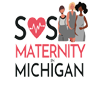 Pregnancy is one of the most important phases of a woman’s life. Not only is she experiencing a major transition during her life, but her body is also undergoing a natural physiological stress test. Silent and hidden underlying diseases become apparent as the body is accommodating the changes that are brought as she carries her baby to birth. Several things can go wrong during pregnancy, and unfortunately result in horrible outcomes for the mother and the child. The Office of Women’s Health strives to identify and study the factors that can contribute to negative outcomes during pregnancy.
Pregnancy is one of the most important phases of a woman’s life. Not only is she experiencing a major transition during her life, but her body is also undergoing a natural physiological stress test. Silent and hidden underlying diseases become apparent as the body is accommodating the changes that are brought as she carries her baby to birth. Several things can go wrong during pregnancy, and unfortunately result in horrible outcomes for the mother and the child. The Office of Women’s Health strives to identify and study the factors that can contribute to negative outcomes during pregnancy.
Social Determinants of Health and Pregnancy Outcomes
 Social Determinants of Health, such as education, housing, transportation, employment status, etc, are non-health related factors in a woman’s life that could impact her health. Several factors, such as being of minority race/ethnicity, have been linked to negative outcomes in pregnancy, such as preterm birth. Through our data registries and other projects, we aim to uncover the link between different social determinants of health and health outcomes of the mother and baby.
Social Determinants of Health, such as education, housing, transportation, employment status, etc, are non-health related factors in a woman’s life that could impact her health. Several factors, such as being of minority race/ethnicity, have been linked to negative outcomes in pregnancy, such as preterm birth. Through our data registries and other projects, we aim to uncover the link between different social determinants of health and health outcomes of the mother and baby.
COVID-19 and Maternal and Infant Health
 The COVID-19 pandemic has impacted lives of thousands of people, with unknown long-term consequences that have yet to be identified. Literature shows that pregnant women and their newborn are at increased risk of complications during pregnancy, birth, and afterwards. The Office of Women’s Health coordinated the establishment of the Statewide Michigan Collaborative; a research team of 13 institutions that collectively serve 50,000 deliveries per year. Data on women impacted by COVID during pregnancy is collected with results being presented at national conferences, such as The Pregnancy Meeting in 2022. In addition to that, Pregmind, an international research project studying risk factors for depression and anxiety among pregnant women during the pandemic, first came to the United States through the Office of Women’s Health. Additionally, the facilitators and barriers of COVID-19 vaccine during pregnancy are being investigated, in order to identify actionable steps to increase uptake of COVID-19 vaccine during pregnancy.
The COVID-19 pandemic has impacted lives of thousands of people, with unknown long-term consequences that have yet to be identified. Literature shows that pregnant women and their newborn are at increased risk of complications during pregnancy, birth, and afterwards. The Office of Women’s Health coordinated the establishment of the Statewide Michigan Collaborative; a research team of 13 institutions that collectively serve 50,000 deliveries per year. Data on women impacted by COVID during pregnancy is collected with results being presented at national conferences, such as The Pregnancy Meeting in 2022. In addition to that, Pregmind, an international research project studying risk factors for depression and anxiety among pregnant women during the pandemic, first came to the United States through the Office of Women’s Health. Additionally, the facilitators and barriers of COVID-19 vaccine during pregnancy are being investigated, in order to identify actionable steps to increase uptake of COVID-19 vaccine during pregnancy.
 Pregnancy is one of the most important phases of a woman’s life. Not only is she experiencing a major transition during her life, but her body is also undergoing a natural physiological stress test. Silent and hidden underlying diseases become apparent as the body is accommodating the changes that are brought as she carries her baby to birth. Several things can go wrong during pregnancy, and unfortunately result in horrible outcomes for the mother and the child. The Office of Women’s Health strives to identify and study the factors that can contribute to negative outcomes during pregnancy.
Pregnancy is one of the most important phases of a woman’s life. Not only is she experiencing a major transition during her life, but her body is also undergoing a natural physiological stress test. Silent and hidden underlying diseases become apparent as the body is accommodating the changes that are brought as she carries her baby to birth. Several things can go wrong during pregnancy, and unfortunately result in horrible outcomes for the mother and the child. The Office of Women’s Health strives to identify and study the factors that can contribute to negative outcomes during pregnancy.
Social Determinants of Health and Pregnancy Outcomes
 Social Determinants of Health, such as education, housing, transportation, employment status, etc, are non-health related factors in a woman’s life that could impact her health. Several factors, such as being of minority race/ethnicity, have been linked to negative outcomes in pregnancy, such as preterm birth. Through our data registries and other projects, we aim to uncover the link between different social determinants of health and health outcomes of the mother and baby.
Social Determinants of Health, such as education, housing, transportation, employment status, etc, are non-health related factors in a woman’s life that could impact her health. Several factors, such as being of minority race/ethnicity, have been linked to negative outcomes in pregnancy, such as preterm birth. Through our data registries and other projects, we aim to uncover the link between different social determinants of health and health outcomes of the mother and baby.
 Pregnancy is one of the most important phases of a woman’s life. Not only is she experiencing a major transition during her life, but her body is also undergoing a natural physiological stress test. Silent and hidden underlying diseases become apparent as the body is accommodating the changes that are brought as she carries her baby to birth. Several things can go wrong during pregnancy, and unfortunately result in horrible outcomes for the mother and the child. The Office of Women’s Health strives to identify and study the factors that can contribute to negative outcomes during pregnancy.
Pregnancy is one of the most important phases of a woman’s life. Not only is she experiencing a major transition during her life, but her body is also undergoing a natural physiological stress test. Silent and hidden underlying diseases become apparent as the body is accommodating the changes that are brought as she carries her baby to birth. Several things can go wrong during pregnancy, and unfortunately result in horrible outcomes for the mother and the child. The Office of Women’s Health strives to identify and study the factors that can contribute to negative outcomes during pregnancy. Social Determinants of Health, such as education, housing, transportation, employment status, etc, are non-health related factors in a woman’s life that could impact her health. Several factors, such as being of minority race/ethnicity, have been linked to negative outcomes in pregnancy, such as preterm birth. Through our data registries and other projects, we aim to uncover the link between different social determinants of health and health outcomes of the mother and baby.
Social Determinants of Health, such as education, housing, transportation, employment status, etc, are non-health related factors in a woman’s life that could impact her health. Several factors, such as being of minority race/ethnicity, have been linked to negative outcomes in pregnancy, such as preterm birth. Through our data registries and other projects, we aim to uncover the link between different social determinants of health and health outcomes of the mother and baby.


 The COVID-19 pandemic has impacted lives of thousands of people, with unknown long-term consequences that have yet to be identified. Literature shows that pregnant women and their newborn are at increased risk of complications during pregnancy, birth, and afterwards. The Office of Women’s Health coordinated the establishment of the Statewide Michigan Collaborative; a research team of 13 institutions that collectively serve 50,000 deliveries per year. Data on women impacted by COVID during pregnancy is collected with results being presented at national conferences, such as The Pregnancy Meeting in 2022. In addition to that,
The COVID-19 pandemic has impacted lives of thousands of people, with unknown long-term consequences that have yet to be identified. Literature shows that pregnant women and their newborn are at increased risk of complications during pregnancy, birth, and afterwards. The Office of Women’s Health coordinated the establishment of the Statewide Michigan Collaborative; a research team of 13 institutions that collectively serve 50,000 deliveries per year. Data on women impacted by COVID during pregnancy is collected with results being presented at national conferences, such as The Pregnancy Meeting in 2022. In addition to that,